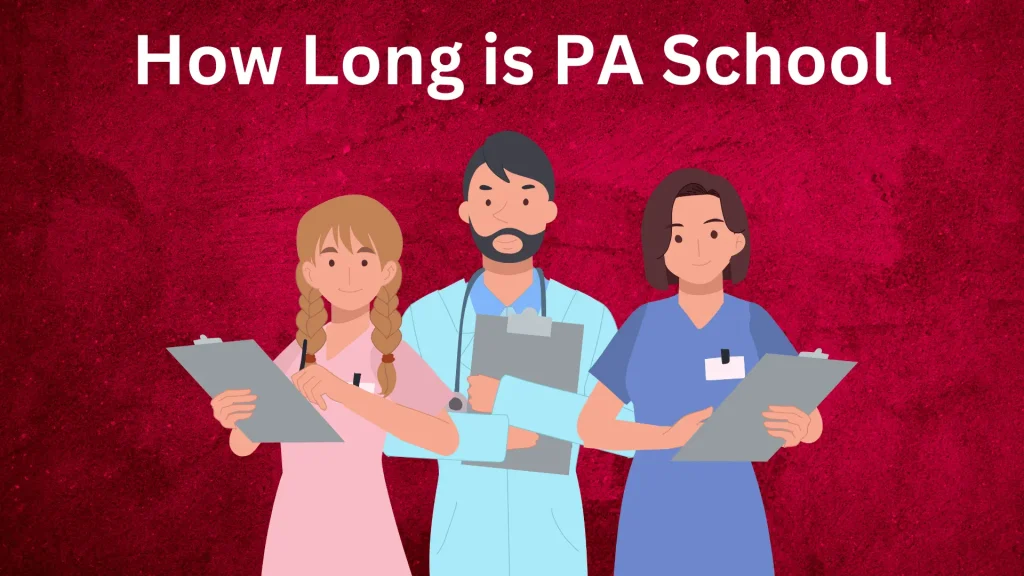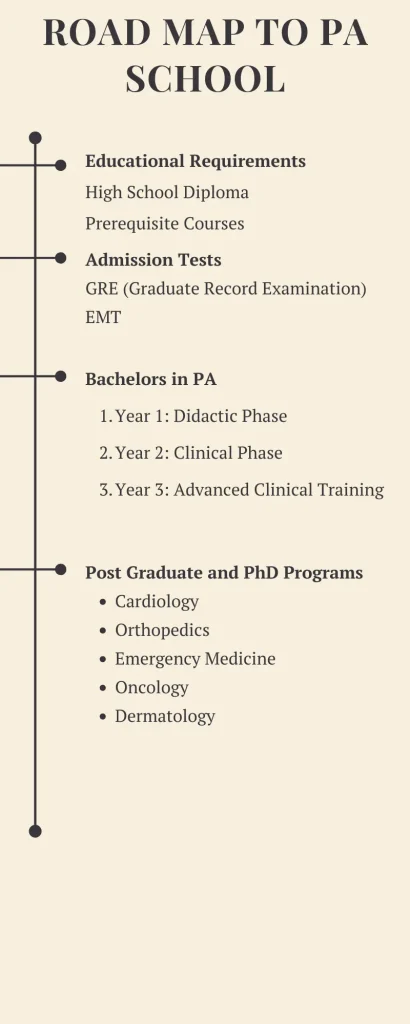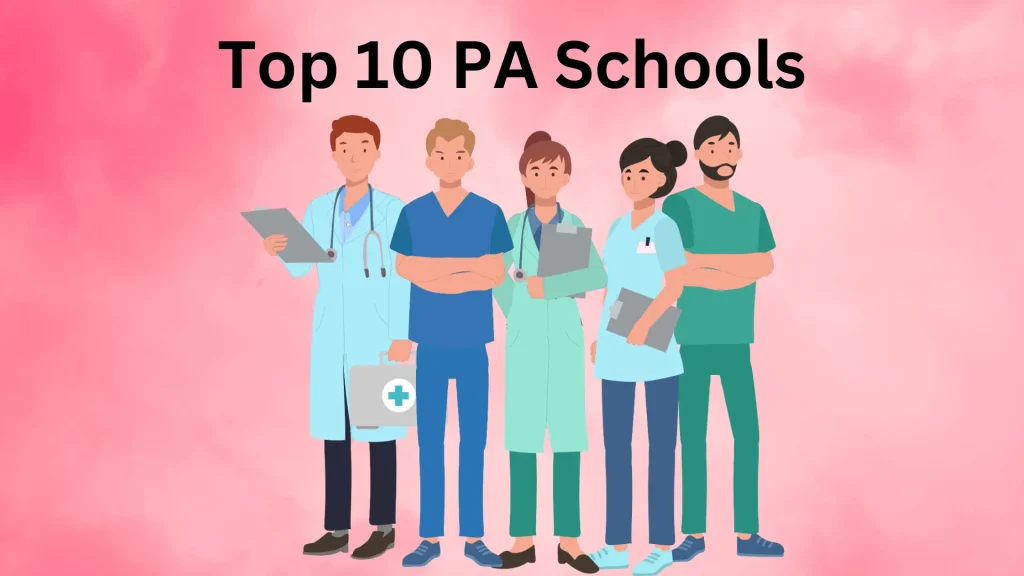Pursuing a career as a Physician Assistant (PA) is an exciting and rewarding journey, but many prospective students often ask, “How long is PA school?” Understanding the timeline and commitment involved is crucial for those considering this path. This article delves into the duration and structure of PA programs, offering a comprehensive guide for aspiring PAs.
What is PA School?
Physician Assistant (PA) school is a graduate-level educational program designed to train individuals to become licensed healthcare professionals known as Physician Assistants. PAs work under the supervision of physicians and are trained to perform a variety of medical tasks, including diagnosing illnesses, developing treatment plans, and prescribing medications.

PA school provides rigorous training that combines classroom instruction with hands-on clinical experience. The curriculum typically covers a wide range of medical subjects, preparing students to work in diverse healthcare settings and offer high-quality patient care.
How Long is PA School?
The duration of PA school varies depending on the specific program and institution. However, the standard length of a PA program is approximately 2 to 3 years. This timeframe includes both didactic (classroom-based) and clinical (hands-on) training. Let’s break down the timeline year by year:
Year 1: Didactic Phase
- Duration: 12 months
- Focus: The first year primarily consists of didactic education, which involves classroom and laboratory instruction.
- Courses: Students take foundational courses in medical sciences such as anatomy, physiology, pharmacology, pathology, and clinical medicine. Additional subjects may include medical ethics, healthcare policies, and patient communication skills.
- Objective: The goal of the first year is to provide students with a solid grounding in medical knowledge and prepare them for clinical rotations in the subsequent years.
Year 2: Clinical Phase
- Duration: 12-14 months
- Focus: The second year is dedicated to clinical training, where students gain hands-on experience in various medical settings.
- Rotations: Students participate in clinical rotations across multiple disciplines, including family medicine, internal medicine, pediatrics, surgery, emergency medicine, obstetrics and gynecology, and psychiatry.
- Objective: The clinical phase aims to expose students to real-world medical scenarios, allowing them to apply their theoretical knowledge and develop practical skills under the supervision of experienced healthcare professionals.
Year 3: Advanced Clinical Training (Optional)
- Duration: 6-12 months (varies by program)
- Focus: Some PA programs offer an optional third year for advanced clinical training or specialization.
- Specializations: Students may choose to focus on a particular area of medicine, such as cardiology, oncology, orthopedics, or dermatology.
- Objective: This additional training helps students refine their skills in a specific field, enhancing their expertise and employability.

How to Enter PA School
Gaining admission to PA school is competitive and requires meeting several educational and testing requirements. Here’s what you need to know:
Educational Requirements:
High School Diploma: Most PA programs require applicants to have a High School degree from an accredited institution. While there is no specific major required, degrees in health sciences, biology, or related fields are often preferred.
Prerequisite Courses: Applicants must complete prerequisite courses, which typically include anatomy, physiology, microbiology, chemistry, psychology, and statistics. These courses ensure that students have the necessary background knowledge for PA school.
Testing Requirements:
Graduate Record Examination (GRE): Many PA programs require applicants to take the GRE. A competitive GRE score can strengthen an application.
Healthcare Experience: PA programs often require applicants to have prior healthcare experience, such as working as a medical assistant, EMT, or nurse. This experience demonstrates a commitment to the medical field and provides practical knowledge.
Letters of Recommendation: Strong letters of recommendation from healthcare professionals, professors, or employers can significantly enhance an application.
Personal Statement: A compelling personal statement that outlines your motivation for becoming a PA, relevant experiences, and career goals is crucial.
Postgraduate and PhD Programs
Postgraduate Programs:
Postgraduate programs, often referred to as PA residencies or fellowships, provide specialized training in particular areas of medicine. These programs are designed for PAs who have already completed their master’s degree and are looking to gain additional skills and knowledge in a specific field. Common specializations include:
- Emergency Medicine: Training in acute care settings, managing emergencies, and trauma cases.
- Surgery: Focus on surgical procedures, pre-operative, and post-operative patient care.
- Dermatology: Specialization in skin conditions, treatments, and cosmetic procedures.
- Cardiology: Training in heart-related medical care, diagnostics, and treatments.
- Oncology: Focus on cancer treatment, patient care, and research.
PhD Programs:
For PAs interested in academic research, teaching, or advanced clinical practice, pursuing a PhD in a related field is an option. These programs are research-intensive and focus on developing expertise in areas such as medical science, healthcare policy, and public health. PAs with a PhD can contribute to medical research, policy development, and advanced clinical practices.
Top 10 PA Schools
Here is a list of the top 10 PA schools in the world, known for their exceptional programs and comprehensive training:

Duke University (USA)
Courses: Clinical Medicine, Primary Care, Surgery, Emergency Medicine
University of Iowa (USA)
Courses: Internal Medicine, Pediatrics, Behavioral Medicine, Research Methods
University of Utah (USA)
Courses: Pharmacology, Pathophysiology, Women’s Health, Geriatrics
Emory University (USA)
Courses: Public Health, Orthopedics, Cardiology, Neuroscience
George Washington University (USA)
Courses: Global Health, Diagnostic Methods, Health Policy, Infectious Diseases
Yale University (USA)
Courses: Clinical Decision Making, Medical Ethics, Dermatology, Radiology
University of Southern California (USA)
Courses: Patient Assessment, Surgery, Psychiatry, Preventive Medicine
University of Colorado (USA)
Courses: Pharmacotherapeutics, Obstetrics, Rheumatology, Pediatrics
Wake Forest University (USA)
Courses: Clinical Procedures, Emergency Medicine, Cardiology, Orthopedics
University of Washington (USA)
Courses: Biostatistics, Medical Genetics, Oncology, Pain Management
Factors Affecting the Length of PA School
Several factors can influence the duration of a PA program, including:
Program Structure: Differences in curriculum design, including the number of required courses and clinical rotations.
Part-Time vs. Full-Time: Availability of part-time study options, which can extend the overall program length.
Clinical Rotation Availability: The availability and scheduling of clinical rotations can impact the time needed to complete the program.
Prerequisite Completion: Time taken to complete prerequisite courses prior to admission.
Specialization Requirements: Additional training required for certain specializations or advanced certifications.
Final Verdict
So, how long is PA school? On average, the journey to becoming a Physician Assistant takes about 2 to 3 years, encompassing both didactic and clinical training. The exact duration can vary based on factors such as program structure, specialization choices, and individual student circumstances. Aspiring PAs should carefully consider these factors when planning their educational path to ensure they are well-prepared for this rewarding career.
FAQs
How long does it take to become a Physician Assistant?
It typically takes 2 to 3 years to complete a PA program, which includes both didactic and clinical training.
What are the prerequisites for PA school?
Most PA programs require a bachelor’s degree and completion of prerequisite courses such as anatomy, physiology, microbiology, and chemistry.
Do I need healthcare experience to apply to PA school?
Yes, most PA programs require applicants to have prior healthcare experience, such as working as a medical assistant, EMT, or nurse.
Can I specialize as a PA?
Yes, PAs can pursue postgraduate programs and specializations in fields such as cardiology, orthopedics, emergency medicine, oncology, and dermatology.
Is it possible to work part-time while attending PA school?
While some programs may offer part-time options, the intense nature of PA training often requires full-time commitment. It’s important to check with individual programs regarding their specific requirements and options.
